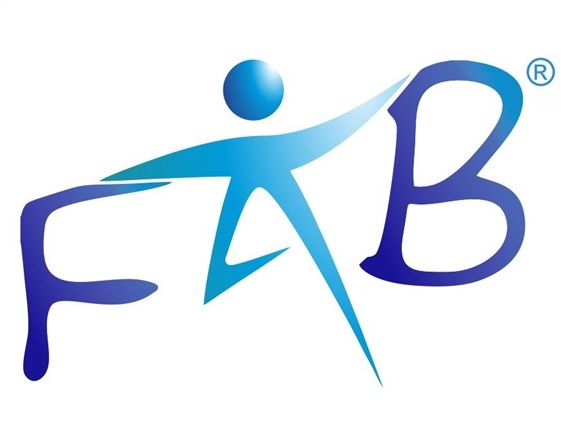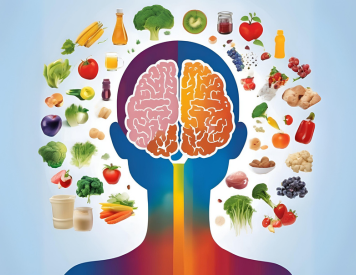Iodine in Pregnancy and Children's Brains - Nutrition Matters
Most pregnant UK women DON'T get enough iodine from their diets – but it’s key for their baby’s brain development

An adequate dietary supply of iodine is vital for both brain and body health at any age, because iodine is needed to produce thyroid hormones (T3 and T4), which regulate numerous aspects of general metabolism, growth and development.
For women before and during pregnancy, however, a sufficient intake of iodine is particularly important – because thyroid hormones play a vital role in the brain development of the unborn child.
Severe deficiencies of iodine during the ‘critical period’ of pregnancy and early life – when the brain is first forming and developing – can therefore have irreversibly damaging effects.
Historically, neurological iodine deficiency syndromes including ‘cretinism’, involving profound physical as well as mental disabilities, and ‘deaf-mutism’ were common in large parts of the UK, along with ‘goitre’, a marked swelling of the thyroid gland in response to lack of iodine. Inland regions like Derbyshire were among the worst affected, because fish and seafood are the richest natural sources of iodine. Goitre even became known as ‘Derbyshire neck’, as it was so common there.
By the late 1960s, however, iodine deficiency in the UK had largely disappeared. Importantly, however, this was not because of any public health measures - such as iodising salt, or other basic foodstuffs, which almost all other developed countries had implemented. Instead, it was a purely accidental result of milk and dairy products having become good sources of iodine (owing to new dairy feed and hygiene practices) along with increases in milk consumption. Nonetheless, for several decades, it was simply assumed that iodine deficiency was now a thing of the past, and simply need not be considered by UK public health authorities.
Such complacency now looks misguided - because by early in the 20th century, evidence was already emerging that iodine deficiency was common in at least some population subgroups, particularly in young women - and in pregnant women.
What is the impact of low iodine status?
What still wasn’t known, however, was whether even mild or moderate levels of iodine deficiency in mothers-to-be might impair their children’s brain development, until ten years ago, a pioneering study to investigate this issue showed that:
- Two-thirds of pregnant UK women had mild to moderate iodine deficiency during pregnancy; and
- This ‘sub-clinical’ level of iodine deficiency in pregnancy predicted significantly poorer verbal ability and reading in their children at 8-9 years of age
The researchers used data from over 1,000 women who took part in the ‘Children of the 90s’ birth cohort study; and they were able to control for numerous socioeconomic, psychological and biological factors known to affect children’s intelligence and cognitive development.
Although observational studies can never provide definitive evidence of causality, these findings therefore provide strong evidence that low maternal iodine status in pregnancy can impair childhood mental development. Since then, other studies have also reported similar findings. For example a similar study in Norway found
- children of mothers with low iodine intake in pregnancy had poor language development and fine motor skills, as well as more behavioural problems, when assessed at three years of age.
In 2015, independent researchers using conservative estimates calculated that it would be cost-efficient for all pregnant women to be given iodine supplements in countries like the UK with high levels of mild-moderate deficiency, because while for individuals, the impacts on intellectual ability and educational achievement may be subtle; at the population level, the overall economic and health consequences of early life iodine deficiency are likely to be significant and longlasting.
How much iodine is enough?
The W.H.O. recommended iodine intake for adults (>12 years) is 150 µg/day. During pregnancy and breastfeeding, they recommend 250 µg/day, to meet increased needs and ensure adequate thyroid hormone production for both the mother and the fetus. (EU and UK recommendations are the same as the W.H.O for adults, but lower for pregnancy and breastfeeding, at 200 µg/day).
The main dietary sources of iodine in the UK are milk and dairy, by far, because consumption of fish and seafood, although a very rich source, has fallen so low. And consumption of both these types of foods has been declining further in recent years as 'plant-based diets' have become more popular, particularly among young women.
Other food sources include eggs and meat, but most plant foods provide little or no useful contribution to iodine requirements, so vegans are at high risk of deficiency without supplementation. Seaweed is an exception here – especially brown seaweeds such as kelp, which are very high in iodine. However, excessive iodine intakes are harmful, so kelp and seaweed supplements are NOT recommended, as these are not regulated and can easily provide an excess.
Key messages
- An adequate supply of iodine is vital during pregnancy and breastfeeding.
- Even mild deficiency of iodine during pregnancy can affect brain development - and can lead to poorer cognition in childhood (e.g. IQ and reading ability).
- Pre-pregnancy stores of iodine are important; any woman of childbearing age, and especially those who are planning a pregnancy, should ensure that they get enough iodine in their diet.
- Milk and dairy products are the main source of iodine in the UK diet. Other important sources include seafood (i.e. white fish, oily fish and shellfish); and eggs and meat provide a little.
- Vegan diets are associated with a high risk of iodine deficiency, so supplementation is needed to achieve adequate intakes.
- Seaweed or kelp supplements should not be used as an iodine source. This is because the amount of iodine in the supplement can vary considerably from the label claim, and can provide excessive quantities of iodine, which can be harmful.
Further Information
For more information on iodine - including practical information on which foods can help to meet dietary needs – see:
Iodine - Food Facts (UK British Dietetic Association)
- Iodine deficiency may lower UK children's IQ
- Large UK study finds that iodine deficiency during pregnancy adversely affects children’s mental development
- Pregnant women lack guidance on iodine intake levels
- Iodine ignorance: Irish researchers call for public health campaign
- A simple daily pregnancy pill could boost population IQ and save the NHS money
- Vegans most at risk of missing target iodine intakes, suggests Norwegian study
For additional news and research articles on this subject, please see also see the following lists, which are regularly updated:
- Iodine in Pregnancy - News
- Iodine in Pregnancy - Research
- Iodine - News
- Iodine - Research
- Pregnancy and nutrition - News
- Pregnancy and nutrition - Research
Sign up for FAB's FREE Newsletter
Get the latest insights in nutrition and brain health.
Our tailored content supports
- parents and carers looking for practical information,
- health and education professionals in their practice,
- students and researchers about current studies and developments.
More articles

Food and Behaviour Research is a registered charity (No SC034604) and a company limited by guarantee (Co No SC 253448)
what we do
Important Notice:
Medical opinion and guidance should always be sought for any symptoms that might possibly reflect a known or suspected disease, disorder or medical condition. Information provided on this website (or by FAB Research via any other means) does not in any way constitute advice on the treatment of any medical condition formally diagnosed or otherwise.
All Rights Reserved | Food and Behaviour Research | Privacy Policy | Terms of Use | Accessibility







